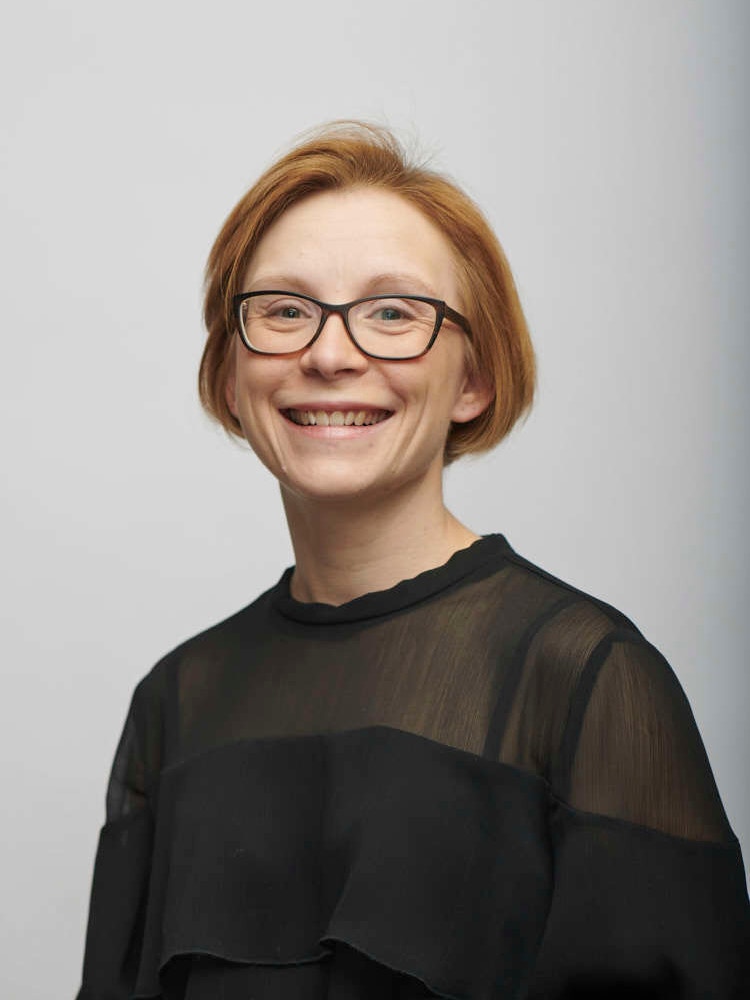
− What I think of most often, is the amazing luxury we have of being able to come to work and hear such incredible music played by such skilled people every single day! It works wonders if the day has had a bad start. Nevertheless, the greatest times are probably those when I'm aware of that my work can provide others with good experiences. I feel very humble and happy when I meet members of the audience who express that what I do brings them joy.
Birgitte Volan Håvik
Birgitte Volan Håvik grew up in Trondheim, and started playing the harp at eight years old.
− I have been actively concentrating on it since I was quite young, and I can´t really remember considering any other career but that of a musician, she says.
− The Culture School in Trondheim was very proud of the fact that it was the only school in the whole country who offered a harp class, and therefore dispatched us as emissaries fairly often. Since there were relatively few harp players, I was able to partake in professional life quite early on. I played my first concert with the Trondheim Symphony Orchestra when I was fifteen, and am very grateful to them for giving me this useful experience so early.
− We had to stretch that little bit further
Willy Postma, former harp player in the Trondheim Symphony Orchestra, was her teacher from the beginning until she graduated from Norges Musikkhøgskole at twenty-four. The current harpists in the Bergen Philharmonic, the Opera Orchestra and the Norwegian Radio Orchestra also were Postma's students in Trondheim.
− She was very good at providing challenges for her students which made us stretch that little bit further, and she often gave us a lot of her own time so that we would perform well. As a performer she was and still is one of my great idols. I also want to mention Fabrice Pierre, the harp professor at CNSM in Lyon, where I partook in an Erasmus exchange. He is a fantastic teacher, and he made me see aspects of the instrument I had not been aware of before.
Birgitte was engaged by the Oslo Philharmonic Orchestra in 2008. There are two aspects of the orchestra musician´s life which make her especially happy:
− What I think of most often, is the amazing luxury we have of being able to come to work and hear such incredible music played by such skilled people every single day! It works wonders if the day has had a bad start. Nevertheless, the greatest times are probably those when I'm aware of that my work can provide others with good experiences. I feel very humble and happy when I meet members of the audience who express that what I do brings them joy.
− I will never forget it
As a listener, she has a weakness for the great late Romantic composers, and Richard Strauss, Gustav Mahler and Giacomo Puccini are among her favourites. She is also very fond of the way in which Claude Debussy and Maurice Ravel use the harp in their music. Her most memorable experience with the orchestra comes from playing music from this very period:
− I think the highlight for me so far has to be when we played Sibelius´First symphony in Vienna´s Musikverein in 2009, with Jukka-Pekka Saraste conducting. I´ll never forget it.
As a listener, Birgitte thinks she tends to enjoy music the most if she knows it well.
− I like it best when I can hear things many times. So, for some it may be best to arrive prepared, for example, by listening to recordings beforehand. For everyone else I would recommend to just come to the concert, to relax, turn off your mobile phone and enjoy the music!
When she isn´t playing, she enjoys spending time with her son, spending “far too much time” sitting in cafes with her friends, and doing yoga.